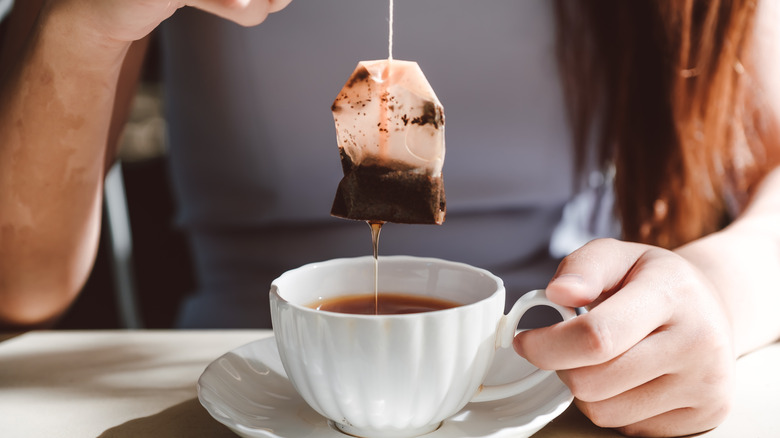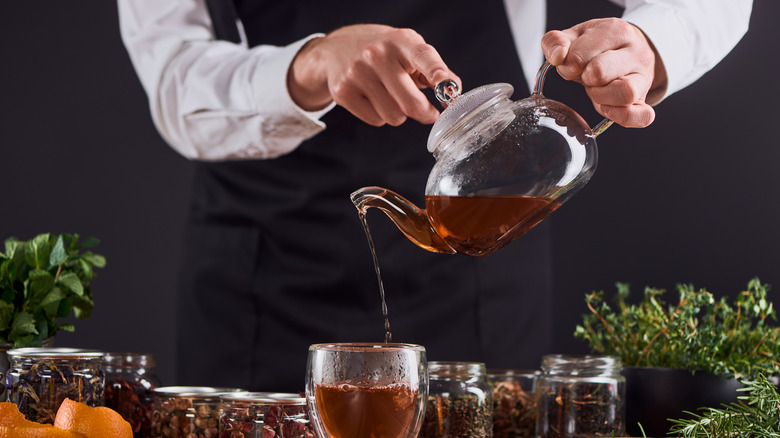Does Dunking A Tea Bag Actually Do Anything?
Tea and ritual go hand in hand. Take for instance the elegant Japanese tea ceremony, with its precise and exacting steps; or the grand English tradition of afternoon tea complimented by silver towers of finger sandwiches and petit-fours. Simpler still, when one needs a midday break, they may step away from their work, slip a tea bag into a mug of hot water, hold it closely with both hands wrapped around the warm sides, and breath deeply the enchanting aroma.
But then what? Do you step away and allow infusion to run its course, or do you give in to the temptation to gingerly dunk the tea bag in and out of the brew, hopefully speeding along the process? Is this agitation crucial to getting a proper drink or merely a ritualistic tick?
For the sake of clarity, when we refer to tea here, we mean the leaves of camellia sinensis, an evergreen plant, which comes in the form of black, oolong, white, green, and similar varieties of tea, according to the Tea Association of the U.S.A. Mint, chamomile, and other beverages made from hot extraction of leaves, roots, bark, and seeds, not from camellia sinensis, are referred to as herbal teas.
The science of steeping
Whether you prefer loose tea in a reusable infuser or the common tea bag, the urge to dunk or swirl a steeping tea preparation is the same. So, it's important to understand what is going on in the vessel during the process.
As the BBC's Science Focus magazine explains, when dried tea leaves are introduced to hot water, compounds such as tannins, polyphenols, and amino acids dissolve and swirl throughout. Aromatics blossom first, followed by lighter, and then heavier, compounds that contribute to the depth of flavor and color. The longer the soak, the higher the concentration of these compounds become in your tea.
What then does dunking do? An analysis by Forbes found the answer to be not much, scientifically speaking. Swirling and dunking a tea bag or infuser does move the tea leaves into contact with more of the fresh water in the vessel and aid in diffusion, but this is only nominally more effective than the diffusion that naturally occurs during the usual suggested three to five minutes of steeping time.
Speaking of steeping time, you may have noticed that if you've neglected a tea bag and removed it past the prime time, the results can be a bit bitter. That is due to the excess nutrients and flavors shed by the tea, says The Tea Shelf. But that bitter cup of tea is also packing added caffeine, which may be just what you're after, and an extra dose of antioxidants, including those linked to cancer prevention. So if you can stomach it, an occasional oversteep could be worth it.

